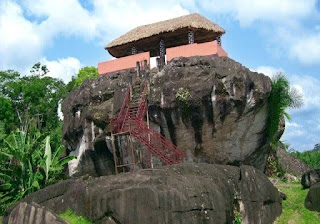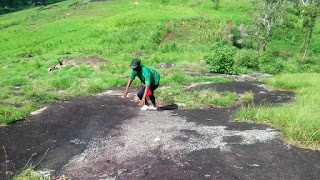Tourism : A luxury for African
Tourism is an activity which includes
several other sectors of activity: transport (air, rail, road),
accommodation, catering, sports and recreational services, cultural
services, computer applications and tools, etc. All these activities,
grouped together in one, contribute in one way or another to the
development of mankind, both individually and as a community.
However, the particularity of this activity is that it is a good that
is consumed when primary needs have been satisfied.
According to
the figures published by the United Nations agency responsible for
promoting tourism (UNWTO), Central Africa, despite the efforts made
by each State, is lagging behind. Among the world's emitting zones,
the African continent, and more particularly Central Africa, occupies
the last ranks. Could this situation be justified by the unsatisfied
primary needs of many people?
Affirmative! This is the answer that
seems obvious. Could the problem not be found elsewhere?
A
tourist, according to the UNWTO, is any person who travels to
countries or places outside his or her usual environment for personal
or professional purposes or for business for a consecutive period not
exceeding twelve months. Moving outside one's environment involves
expenses for transport, food or accommodation. How many cities have
pleasant transport routes for visitors to tourist destinations? In
addition, many of these hotels open their doors while trying hard to
meet international hotel standards. But how many Africans can afford
the luxury of a room in a hotel at least once a year? How many
prepare for hotel accommodation during their travels? Wouldn't they
rather stay with someone they know? What is the tourist's conception
of the tourist?
For many people, the tourist is the Other. He is
the one who gets off the plane, who has a lot of money and behind
whom you can make the most of it. And therefore, the tourist activity
"is for people who have money and don't know what to do with it.
That's what hotels are built for. It is for them that tourist guides
are trained". How many Africans know their own countries?
Far
from being a luxury, tourism is an activity whose contribution to
development is undeniable: US$43.6 billion in revenue recorded in
2012 for more than 30 million jobs created. However, these benefits
can only be seen if and only if mentalities change. Tourism should
no longer be seen as the business of others, but rather as everyone's
business, an opportunity for cultural enrichment. An opportunity that
does not necessarily require the possession of large sums of money to
be able to practise it. Eating porcupine, discovering traditional
dances and the contrasts of the relief during funeral events does not
necessarily require a lot of money. Drinking palm wine or raphias
does not require a lot of money.
The professionals of this
profession have a lot to do. A Copernican-style revolution must be
made in order to bring about notable changes. It is a question for
them of sensitizing, of informing, of bringing the ones and the
others to know their countries better. This requires innovation and
diversification of tourist products, conservation and promotion of
cultural identities, respect for standards...Africans must be able to
identify themselves through the tourist products they design.
Tourism
is not only a matter for the wealthy, "who have nothing to do
with their money", it is a matter for everyone; for everyone at
his or her low level can do it.
Y.F



Commentaires
Enregistrer un commentaire
Merci de nous aider à nous améliorer en laissant un commentaire